
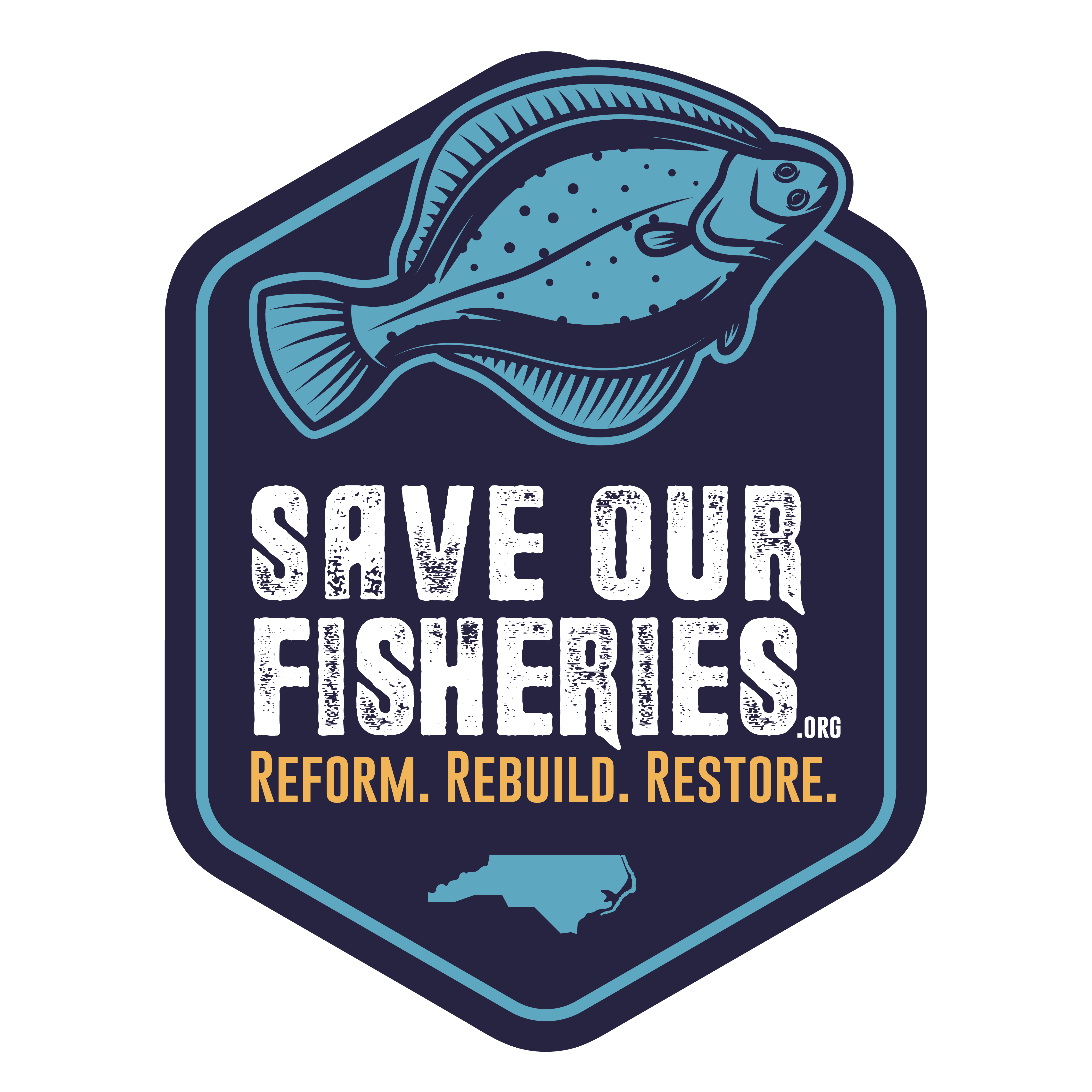
Calling All North Carolinians
For generations, North Carolina enjoyed a nationwide reputation among the fishing public for the extraordinary abundance of our coastal sounds and river estuaries. Today, due to decades of mismanagement and wasteful overharvesting, our once-abundant inshore fisheries resources are in shocking decline.
Your voice is needed. Please join us in the mission to
Save Our Fisheries.
Help Turn the Tide Before It's Too Late
Save Our Fisheries is a public campaign calling on state leaders to reform, rebuild, and restore North Carolina’s coastal fisheries.
Until the mid-20th century, healthy, thriving fisheries were still a source of sustenance, even survival, for many in coastal North Carolina. Through the 1960s and 70s, public fishing in the region was nationally renowned. From all corners of the state and across the country, anglers made the pilgrimage to our coastal waters to catch spot, striped bass, gray trout and other palatable species. Southern flounder, a North Carolina staple, were everywhere.
Fast forward 50 years. The river herring fishery has collapsed. The legendary spot runs are gone. Gray trout and croaker, once abundant in Pamlico Sound, have been decimated by shrimp trawls. The public fishing seasons for striped bass and flounder have been drastically cut back due to declining stocks. For Southern flounder, the entire annual public season for 2022 is just 28 days, and anglers can harvest only one fish per day.
The State of North Carolina is solely responsible for the policies that have led us to this moment. Those of us who are unwilling to allow our public trust fisheries resources to be irreversibly degraded must act decisively before time runs out. CCA NC and 86 citizen plaintiffs have filed a lawsuit on behalf of all citizens of North Carolina to hold the state accountable for its ongoing failure as trustee of our coastal fisheries.
We need your help. Your voice and your support can help ensure that outdated and inequitable policies are reformed, critical fish stocks are rebuilt, and our coastal fisheries are restored to health and abundance.
Your Right to Fish
The right of citizens to access and harvest fish in common or navigable waters predates the rights of free speech and due process. It is one of the most ancient rights inherent in public governance.
To ensure this right, the State of North Carolina is responsible for the stewardship of our fisheries, holding those resources in trust on behalf of more than 11 million citizens and future generations. This is the foundation of the public trust doctrine, a long-standing legal doctrine establishing the state’s responsibility to protect public “rights of use” in navigable waters. The public right to fish is also expressly guaranteed in the North Carolina Constitution’s Declaration of Rights.
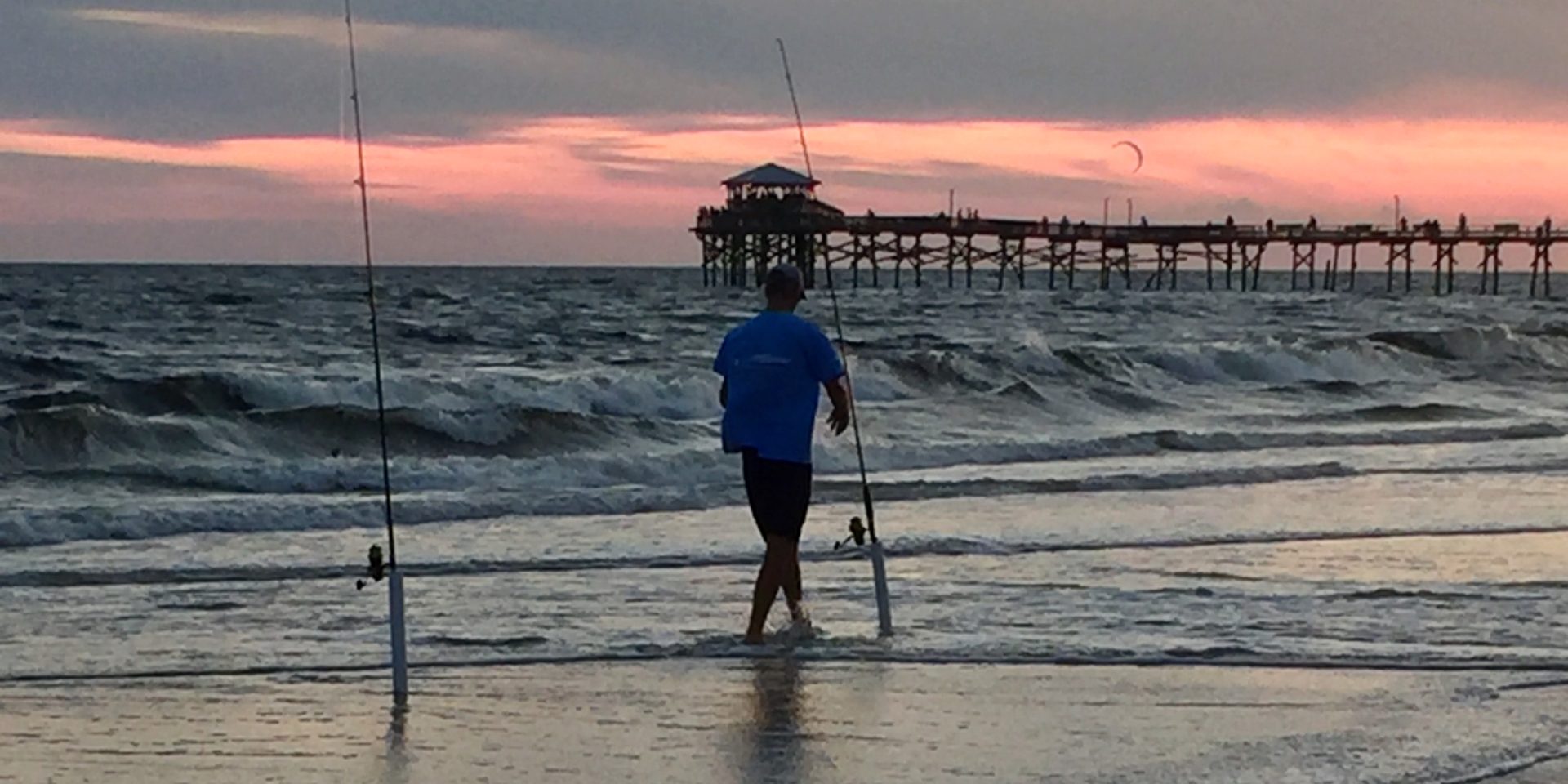
Decades of Mismanagement and Decline
Despite these judicial and constitutional guarantees, our right to fish is being dramatically infringed upon due to severe declines in fish stocks. The explanation for this is all too clear. The State itself—the trustee of the resource—has failed in its duty to protect our coastal fisheries from overexploitation and waste.
The legal complaint filed by CCA NC and 86 individual citizens details three primary areas where the state’s mismanagement of the resource has led to year-over-year declines that are now impacting our public trust and constitutional rights to fish.
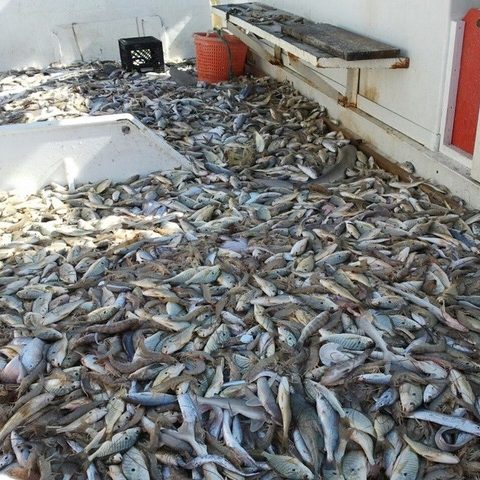
The state allows fishing practices that result in critical estuarine habitat damage and substantial resource wastage.
For example, North Carolina is the only Atlantic coast state that allows significant shrimp trawling in estuarine spawning and nursery grounds for many important fish species. For every pound of shrimp harvested, more than 3.3 pounds of juvenile fish — nearly a billion fish — are killed and wasted in trawl nets in North Carolina waters each year.
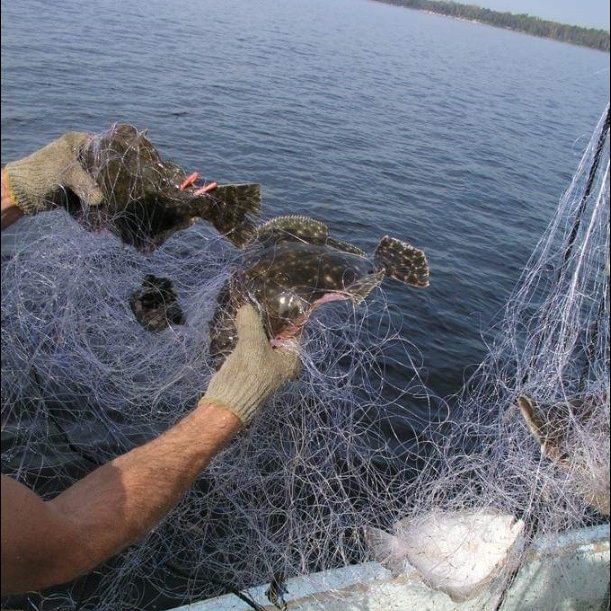
The state has refused to address the chronic, long-term overfishing of important species.
A half century ago, North Carolina’s river herring, our oldest and once-largest coastal fishery, fell into decline due to overharvesting. When the state failed to act, the stock collapsed. Which fishery is next? Today, our renowned Southern flounder is no longer a viable stock. Striped bass and other species are in continuous decline. Last-ditch restoration efforts by the state have focused on draconian reductions in the public fishing seasons and possession limits, further infringing on the public right to fish.
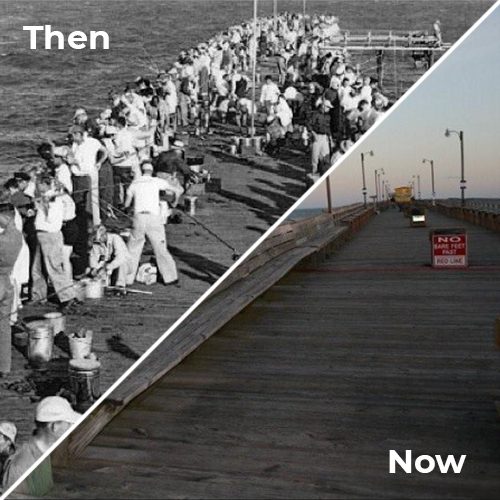
The state has long tolerated a lack of reporting by most commercial fishing license-holders.
Allowing large-scale, undocumented harvest greatly obscures the true degree of annual harvest, calls into question the validity of the State’s coastal fish stock assessments, and poses a persistent threat to the resource.
What Must Be Done
Every North Carolinian will benefit ecologically, economically and culturally from the restoration of our coastal fisheries. While the specific solutions to restore our fisheries are up to the state as the resource trustee, those solutions must address the problems outlined in the lawsuit against the state:
1Reform coastal fisheries management policies.
The state must manage coastal fisheries to fully comply with existing statutes that require ending overfishing and achieving stock sustainability in a timely manner in order to ensure the long-term viability of all public-trust fish stocks.
2Adequately protect estuarine finfish nursery areas.
The state must work to protect juvenile finfish in those waters to ensure the sustainability of all coastal fish stocks, as required by current state law.
3Minimize undue wastage.
The state must ensure that bycatch in all fisheries is commensurate with viable, sustainable fish stocks, as required by current statutes.
4Prioritize the resource over harvest.
The state should either not seek to renew the federal Incidental Take Permit allowing sea turtle to be injured or killed in gillnets, or publicly justify its decision to renew it in light of the plight of Southern flounder and existing state law prohibiting the take of sea turtles.
5Use the right management data.
The state must reasonably account for all resource harvest in managing public trust fisheries resources to ensure that all stocks can be managed sustainably as required by current statutes.
What You Can Do
Know the issues. On this website, click on the tab “CCA NC Lawsuit" to read the summary, FAQs, and the full legal complaint.
Ask questions. Contact CCA NC to ask specific questions about the lawsuit. Contact the Governor's office, the Attorney General, and your local representatives in the General Assembly to ask them about the chronic decline of our coastal fisheries and what they intend to do about it. Ask all political candidates to articulate their positions on coastal fisheries management and reform. And clearly voice your opinion that this “tragedy of the commons” is unacceptable, and that you want it stopped, starting immediately.
Get the word out. Tell your family and friends about the demise of North Carolina's public trust fisheries resource using all means at your disposal—word-of-mouth, email, social media—and urge them to get involved. Put a SaveOurFisheries.org campaign sticker on your car, truck, boat or cooler. Be an advocate for the resource and for your rights as a North Carolinian.
Sign the petition.You can add your name and your voice to our petition supporting fisheries reform for North Carolina.
Volunteer. CCA NC is a non-profit conservation organization funded by membership fees, grants and contributions. As the campaign to save our coastal fisheries progresses, volunteer support will be needed. Contact CCA NC and offer your help.
Join the lawsuit. You can put your name on a waiting list to join the lawsuit as a plaintiff by contacting CCA NC for that specific purpose.
Donate. Litigation is expensive. You can help by clicking on the "Donate” tab. Under "Special Instructions,” designate that your contribution is to be exclusively used to support the lawsuit.
Together, We Can Save Our Fisheries
As a citizen of North Carolina whose legal rights have been infringed by the state's decades-long mismanagement of our coastal fisheries, the one thing you cannot do is to simply accept the status quo, Each of us is responsible for the resource legacy we leave to our children and grandchildren.
Join us in this campaign to hold the state accountable.
Can we ever go back to those days of resource abundance? The answer is an emphatic yes! With your help, we can reform, rebuild and restore our coastal fisheries, leaving a legacy that will benefit all North Carolinians, for generations to come.


